Knowledge Products
The GPSC hosts a digital library featuring practical tools, reports, and case studies. Explore curated resources across thematic areas, filtering by topic or region to find the insights required to advance urban sustainability.
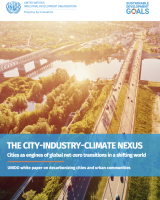
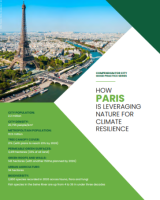
Compendium for City Good Practice Series: How Paris Is Leveraging Nature For Climate Resilience
This report, as part of the Compendium for City Good Practice series, highlights Paris's innovative approach to climate resilience through the strategic integration of nature into urban environments. It offers a comprehensive overview of Paris's strategy on urban nature, showcasing how the city is integrating biodiversity into planning, leveraging green spaces, biodiversity corridors, and sustainable landscaping to mitigate the impacts of climate change. The report serves as a valuable resource for cities worldwide seeking to emulate Paris's successful model of

Note on Nature Finance Tracking Methodology
International Development Association (IDA) participants requested that the World Bank develop a methodology to identify, monitor, and track nature-positive World
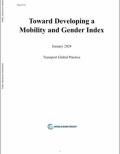
Toward Developing a Mobility and Gender Index
Although the benefits of a gender-inclusive approach to mobility for transport decarbonization, access to jobs, and human capital advancement have
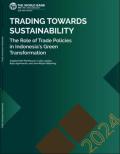
Trading Towards Sustainability: The Role of Trade Policies in Indonesia’s Green Transformation
Climate change - and efforts to mitigate and adapt to it - will affect global flows of trade and Indonesia’s
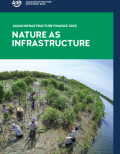


Healthy Cities: Revisiting the Role of Cities in Promoting Health
The Healthy Cities Report aims to provide policymakers and development practitioners with an action-oriented framework for achieving healthy cities. Informed
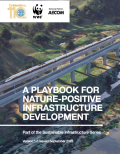
A Playbook for Nature-positive Infrastructure Development
Infrastructure is one of the main drivers of biodiversity loss. For example, 95% of deforestation in the Brazilian Amazon is

Unlocking Blue Carbon Development: Investment Readiness Framework for Governments
The purpose of this paper is to provide a practical framework to guide governments in catalyzing and scaling up public
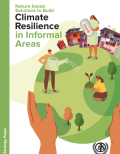
Nature-based Solutions to Build Climate Resilience in Informal Areas
This strategy paper draws from existing research and practical project experience applying nature-based solutions (NBS) for adaptation and building climate

Behavior Change in Solid Waste Management - A Compendium of Cases
Today the world faces unprecedented challenges in waste management while the state of the municipal waste management sector globally is


